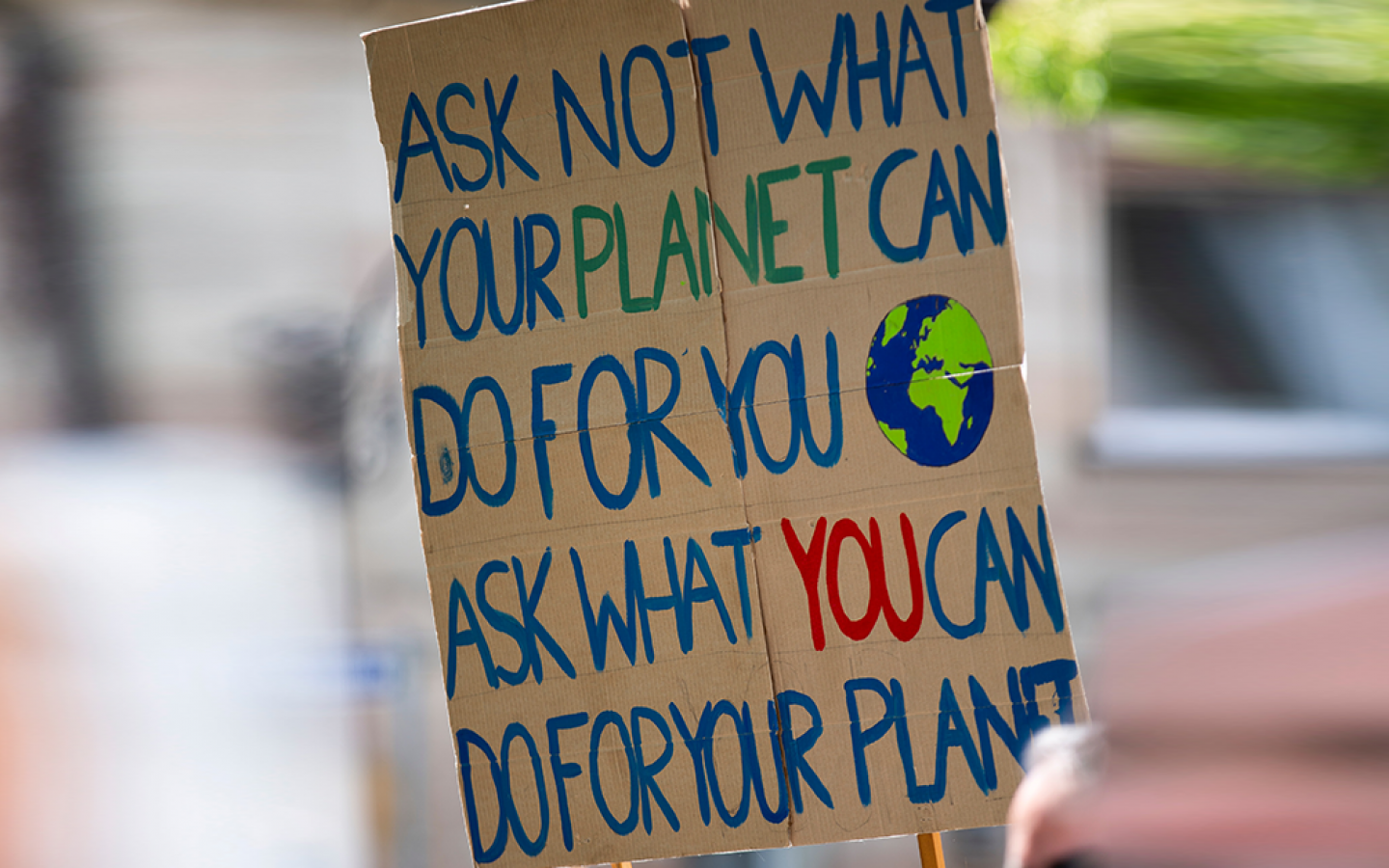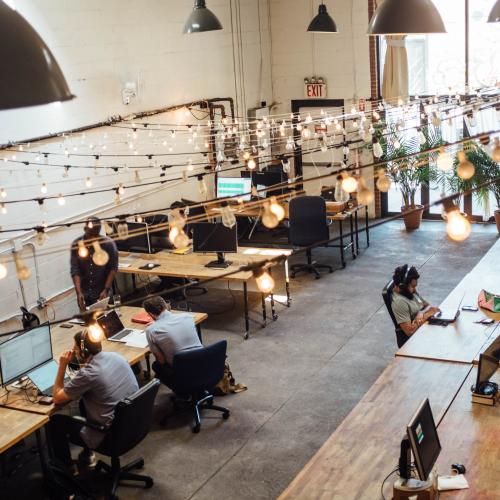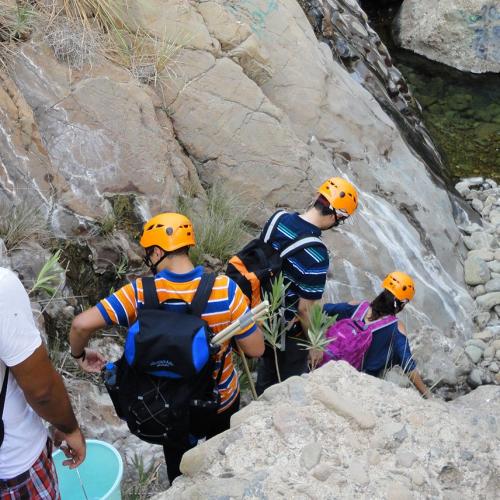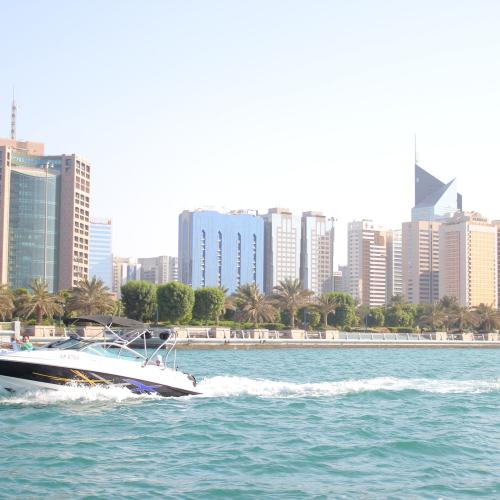48 ways to save water in the UAE

Here’s our bucket list of simple ways to save loads of water in your bathrooms, kitchens, gardens and homes.
We use a tremendous amount of water in the UAE – an average 550 litres per person every single day. That’s double the amount the average person in the world uses. Which is odd since we live in a water-scarce region and quite irresponsible since our water has such a high environmental footprint. Did you know that up to half of that desalinated water is wasted?
So, let’s say NO to wasting water with these simple easy-to-implement life hacks.
First, channel your inner Sherlock Holmes.
Put on your detective hat, and find out how much water you actually use. Dig out your water bill or sign in to your utilities website to see your consumption trend.
Choose a month when you were in town and not on holiday. Your monthly consumption will be listed in imperial gallons, or IG. Divide this number by 4.55 to convert it to litres. Then divide by the number of days in that month. Last, divide by the number of people in your home.
Voila. That’s how much water you consume a day.
Now let’s put things in perspective. When the city of Cape Town in South Africa nearly ran out of water in 2018, people were urged to use only 50 litres of water a day. This was their ‘new normal.’ It was painful, but they were able to adapt successfully.

The “new normal” for Capetonians during the water crisis of 2018 (The Water Files, WWF South Africa)
Our 'new normal' water lifestyle
Living in a water-conscious manner should be something we all do naturally, without thinking. This kind of lifestyle was common a few decades ago, and it’s really quite easy to revert back to. Here’s how.
In the bathroom
Rethink your showers…
- Take shorter showers that are 3-4 minutes tops.
- Use a stopwatch or your phone alarm to help time your showers.
- Install an efficient showerhead that automatically reduces the flow to less than 8 litres a minute. Start by testing your current showerhead – if you can fill a 1-litre bottle of water in under 7.5 seconds, you should switch to a showerhead with a flow of 2.0gpm or lower.
- Or, swap to ‘bucket showers’ and limit yourself to one bucket every time.
- Avoid baths, they consume 3x the water of a short shower.
- If you must have a bath, plug the drain before running the water. You can adjust the temperature as the tub fills up.
- Turn off the tap while applying soap and shampoo or while shaving.
- Make a combo spray of shower gel and water so that you can lather your body before you even turn on your tap. Buy a foam dispenser that you can refill and use for the long-term – you’ll save water and shower gel in the process. (Check out this great video guide)
- Or, plug the drain during your shower and use the collected water for flushing.
Reduce your tap usage…
- Replace the aerators on your taps. These are cheap to buy and can limit the flow of water by 40% to 70%.
- Turn off the tap while brushing and washing your hands.
- While brushing, rinse your teeth using a glass instead of a running tap.
- Use foam soap dispensers to lather your hands before turning the tap on.
Cut back on flushing...
- Flush only when you have to. For some, this means ‘letting yellow mellow.’ For others, this means throwing things in the bin and not down the toilet. It’ll save one flush worth of potable water and reduce the strain on sewage treatment plants.
- Install a more water efficient or dual flush toilet.
While doing laundry
- Dig out your washing machine manual and find out which setting uses the least water.
- Only run the machine when you have a full load.
- Reduce your pile of dirty clothes. Refresh clothes by hanging to dry, shaking clean and then re-wearing them. Start with jeans, pyjamas and bed sheets.>
- Choose a high efficiency 4 or 5-star front-loading washing machine if you’re looking to upgrade. A high efficiency front loader uses an average 50 litres per load.
In the kitchen
- Rinse vegetables in a bowl of water instead of under a running tap.
- Collect this water in a bucket and re-use while washing dishes, for flushing or in your garden.
- Thaw frozen foods overnight in the fridge, on a counter or in a bowl of water.
- Save 1/3 of your food from going to waste, and save all the water required to produce those food items.
- Reduce the number of dishes you have to wash. Re-use the same glass all day, and try to cook your meal in one pot.
- Scrape your dishes clean before putting to wash.>
- Scrape; don’t rinse dishes if placing them in the dishwasher. Modern machines no longer require this step.
- Use the eco-setting on your dishwasher.
- If hand washing dishes, plug the sink and fill halfway, then soak dirty dishes before washing.
- Accumulate dirty dishes and aim for one wash a day. This applies to both hand washing and dishwashers.
- If you’re looking to upgrade, choose a high efficiency dishwasher. Dishwashers use less water than traditional hand washing.
Outdoors, in the garden and pool
- Use non-plant items to decorate your garden and reduce the amount of plants you need to water.
- Choose succulent plants that require less water, like aloe vera and cacti.
- Only water your garden when required.
- Water your plants early in the morning or late in the evening to reduce loss to evaporation.>
- Avoid watering on windy days or when it rains.
- Water in spurts to allow better absorption.
- Invest in smart and efficient sprinklers or irrigation systems.
- Choose sprinklers that spray heavy drops of water. Small drops and mist evaporate too easily.
- If watering manually, reuse the water you’ve collected from your showers and kitchen (only reuse water that is free of harmful chemicals).
- Spray water only on your garden and not on the payment.
- Use a broom, not water to clean pavements and the driveway.
- Cover your pool to avoid loss of water to evaporation, and save up to 3,785 litres of precious water a month.
Around the home
- Repair leaks as soon as possible.
- Wash your car with a bucket instead of a hose. If you do use a hose, choose one with a nozzle that allows you to switch it on and off as needed.
- Wash your car less often – skip every 2nd or 3rd
- You can even save during ablution. Aim to use a single 1-litre bottle for washing.
- Last, but certainly not least, start eating more seaweed. It’s nutritious, full of protein and a great way to combat climate change. Watch this video to learn more.
Follow this list, and you’re bound to save bucket loads of water.
Have a tip that’s not listed here? Tell us @ews_wwf.
Looking for more? Check out the sources for these tips: Conservation Tips by DEWA, The Water Files by WWF South Africa, Waterwise, An A-Z of water-saving tips by WWF UK, and Saving Water in the Workplace



